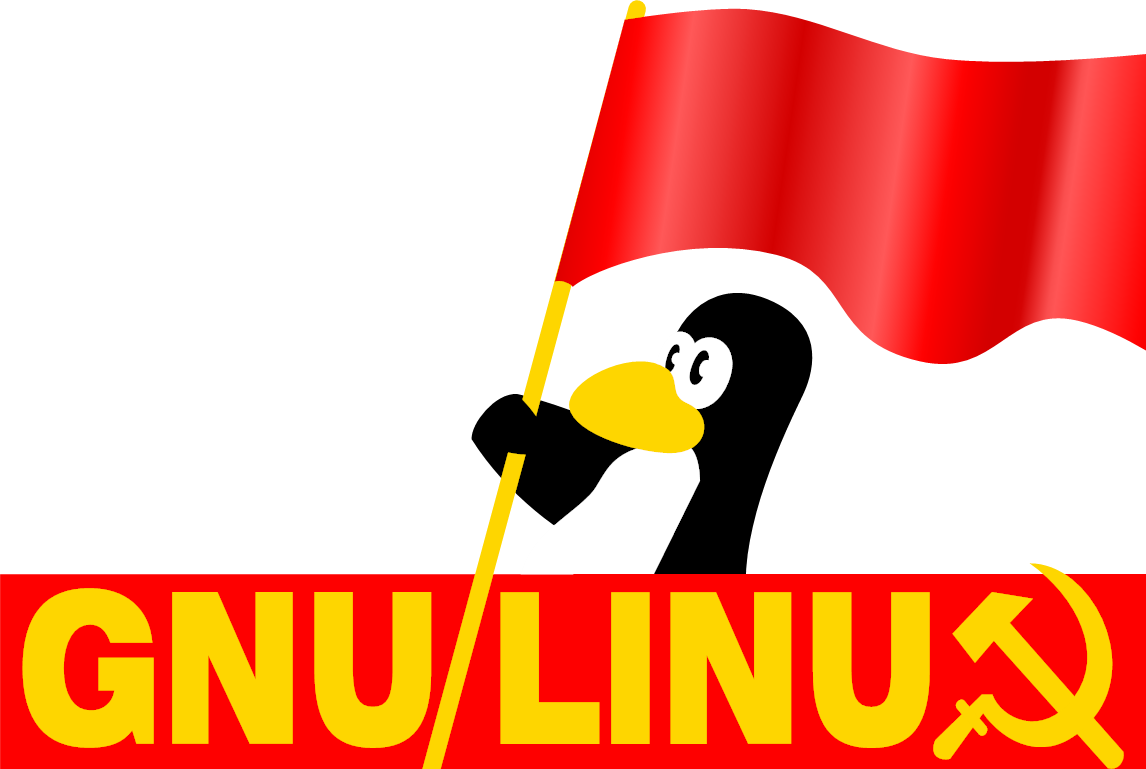this post was submitted on 03 Jun 2025
0 points (NaN% liked)
libre
10031 readers
2 users here now
Welcome to libre
A comm dedicated to the fight for free software with an anti-capitalist perspective.
The struggle for libre computing cannot be disentangled from other forms of socialist reform. One must be willing to reject proprietary software as fiercely as they would reject capitalism. Luckily, we are not alone.

Resources
- Free Software, Free Society provides an excellent primer in the origins and theory around free software and the GNU Project, the pioneers of the Free Software Movement.
- Switch to GNU/Linux! If you're still using Windows in
$CURRENT_YEAR, take Linux Mint for a spin. If you're ready to take the plunge, flock to Fedora! If you're a computer hobbyist and love DIY, use Arch, NixOS or the many, many other offerings out there.
- Those on Apple Silicon Macs can consult Asahi Linux for available options.
Rules
- Be on topic: Posts should be about free software and other hacktivst struggles. Topics about general tech news should be in the technology comm or programming comm. That doesn't mean all posts have to be serious though, memes are welcome!
- Avoid using misleading terms/speading misinformation: Here's a great article about what those words are. In short, try to avoid parroting common Techbro lingo and topics.
- Avoid being confrontational: People are in different stages of liberating their computing, focus on informing rather than accusing. Debatebro nonsense is not tolerated.
- All site-wide rules still apply
Artwork
- Xenia was meant to be an alternative to Tux and was created (licensed under CC0) by Alan Mackey in 1996.
- Comm icon (of Xenia the Linux mascot) was originally created by @ioletsgo
- Comm banner is a close up of "Dorlotons Degooglisons" by David Revoy (CC-BY 4.0) for Framasoft
founded 4 years ago
MODERATORS
you are viewing a single comment's thread
view the rest of the comments
view the rest of the comments
At a high level, there is not much of a difference between most distributions. They're all shipping the same software more or less. Zoomed in, there are some differences which may be of interest to you. Things like project governance, frequency of releases (or potentially, a "rolling release"), distribution architecture (how the package manager and package repositories are set up), whether the distribution does custom branding and spit-shine or they distribute software exactly as published by the upstream developers.
Gaming is one of the most common use-cases. You won't have a hard time installing the Nvidia driver or Steam on any distribution for instance, unless it is a distribution designed exclusively to distribute free software which doesn't support things like this for ideological reasons.
I play just about anything on Gentoo. Native Linux titles, Windows titles through Wine/Proton. Multiple classic systems through emulators ranging from NES to PS3. The main potential sore spot is multiplayer games which require intrusive anti-cheat systems. These typically don't work, but with increasing motivation for publishers to make their games work on Steam Deck, some systems like Easy AntiCheat can work if the publisher chooses (Elden Ring is one example, a Windows game that plays fine in Proton, including multiplayer).
I'm a big fan of Fedora. In general, these 'mainline' distributions (Debian/Ubuntu, Fedora/Red Hat, ArchLinux, Gentoo, etc) form the backbone of the ecosystem. Most of the more boutique distributions are derived from these, applying changes to give them a more suitable out-of-the-box experience for whatever niche they're trying to fill. There's nothing wrong with going either way, but having a general idea of what's going on upstream (e.g. in Ubuntu) can help you understand what's going on in a more niche distribution (e.g. Pop OS, which is based on it).
The upstream distros also typically have very broad hardware support (talking different CPU architectures and instruction sets here, not whether or not your specific USB coffee machine will work). This brings familiarity and uniformity which some people appreciate, like being able to run Debian on anything from a Raspberry Pi to a desktop computer to a high performance server. Something which might not be feasible with Nobara for instance (which is only designed for modern AMD/Intel 64 bit systems afaik).